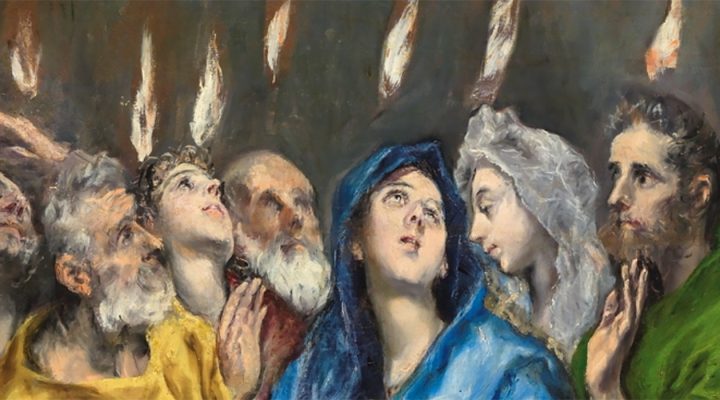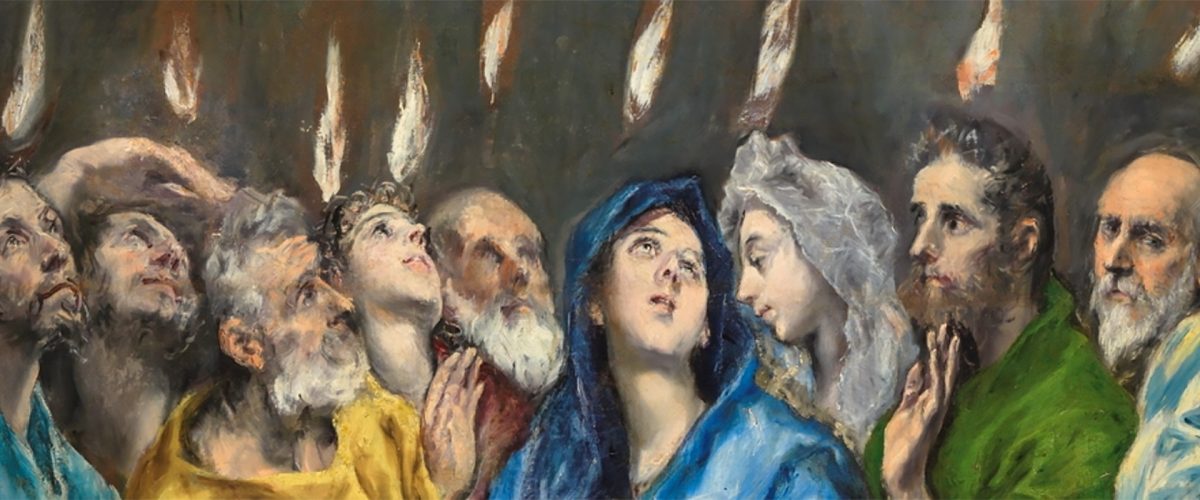Yes, women may have preached on the Day of Pentecost, but the “office of pastor” is reserved for men, a leading spokesman for complementarian theology said in response to Rick Warren’s recent explanation about why he changed his mind on women in ministry.
Baptist News Global reported on Warren’s recent interview with Russell Moore of Christianity Today about the Southern Baptist Convention Executive Committee removing Warren’s Saddleback Church from the SBC because of allowing women to be called “pastor.”
In that interview, Warren said three years ago he undertook a careful study of Scripture and concluded he had been wrong to think women should be limited in their ministry callings. He based his new belief on the presence of women in the biblical stories on the Great Commission, the Day of Pentecost and the resurrection.

Denny Burk
That’s not good enough, warned Denny Burk, president of the Council on Biblical Manhood and Womanhood and a professor at Southern Baptist Theological Seminary. And messengers to this summer’s SBC annual meeting should take note and be prepared to vote against Warren’s likely attempt to overrule the Executive Committee action.
“None of these verses support his argument for female pastors,” Burk said on his website. “All of these texts illustrate some of the myriad ways that women have faithfully served in gospel ministries (including sharing the gospel and prophesying). Complementarians and egalitarians agree that both men and women have shared faithfully in such ministries. And there are many such ministries that women can and must fulfill as the Holy Spirit calls and gifts his female followers today.
“None of Warren’s texts deal with who is qualified to serve in the office of pastor, and that is the issue at hand.”
“But none of Warren’s texts deal with who is qualified to serve in the office of pastor, and that is the issue at hand. For whatever reason, Warren doesn’t give any sustained attention to 1 Timothy 3:2 or Titus 1:6, both of which say that those who hold the leadership office must be the ‘husband of one wife.’ Nor does Warren discuss the Bible’s prohibitions on certain kinds of pastoral functions, like 1 Timothy 2:12, ‘I do not allow a woman to teach or the have authority over a man. Or 1 Corinthians 14:34-35, ‘Let the women keep silent in the churches; for they are not permitted to speak, but let them subject themselves, just as the Law also says. And if they desire to learn anything, let them ask their own husbands at home; for it is improper for a woman to speak in church.’
“Warren offers no explanation why churches may defy these verses. It’s as if these prohibitions don’t matter anymore because he’s just discovered that the Great Commission, the Pentecost outpouring, and the witnesses to the resurrection included females. Warren fails to interpret Scripture with Scripture.
“How can it be that after decades of ministry, he only started to look closely at these verses three years ago? I submit that he still hasn’t looked closely enough if he still thinks these texts support women serving as pastors.”
The argument made against women in ministry by Burk is a classic restatement of the complementarian view that a few select New Testament writings attributed to the Apostle Paul absolutely prohibit women from serving as pastors.
Part of the debate within the SBC right now is over the definition of the word “pastor.”
Part of the debate within the SBC right now is over the definition of the word “pastor.” Some otherwise conservative Southern Baptists argue it’s OK for a woman to be called “pastor” as long as she is not the “senior pastor” with ultimate authority for the church. These kinds of pastors are allowed because they work under the authority of a male senior pastor, they argue. Thus, the ultimate test is authority in a hierarchy.
That’s apparently the case at Saddleback, according to a video in which current pastor Andy Wood explains the church’s position on women in ministry. While women may teach and preach, they do so under the authority of the church elders, a role limited to men at Saddleback.
That’s not enough for the most extreme complementarians — which Burk represents — who typically do not believe any woman ever should be given a title that includes the word “pastor.”
These semantics matter in the SBC because of the wording of the denomination’s faith statement, the Baptist Faith and Message. As amended in 2000, it says: “While both men and women are gifted for service in the church, the office of pastor is limited to men as qualified by Scripture.”
The potential challenge to Saddleback’s expulsion that could arise at the June annual meeting most likely will be based on the definition of the word “pastor” and on whether adherence to the Baptist Faith and Message is mandatory.
Warren told Moore there are “literally hundreds of interpretations” of the verses Burk and his allies believe are absolute. And, he said, “In the Baptist Faith Message, it says this is not binding on anybody. It says it in the preamble: This is not binding on any church.”
Burk disagrees and says Warren has an agenda to “make the SBC a safe haven for churches with women as pastors.”
“Rick Warren says the BF&M should be set aside as a standard, and he intends to make that case at the annual convention this June in New Orleans,” Burk warns.
“I think he may have just rendered a great service to the SBC.”
He concludes: “I think he may have just rendered a great service to the SBC. Warren has just given us a preview of the kinds of arguments that he and his supporters are going to make on the floor of the SBC in June. If you listen to the interview, you will find that the arguments consist of mishandling the Bible while trying to manipulate the emotions of listeners. Anyone who plans to be a messenger to the SBC this June needs to listen to Warren’s arguments now so that they will be ready to resist them when the manipulation begins in earnest on the floor of the convention.”
If Warren and Saddleback appeal their expulsion, it will bring “division” to the convention, Burk asserts.
Warren’s argument about the role of women in the Great Commission, at the Day of Pentecost and the resurrection is one of four “bad arguments” Burk sees in the interview.
Warren charged some in the SBC are more concerned about women serving as pastors than caring for women who have been abused in churches.
“This is a manipulative argument that presents a false dichotomy — as if the SBC has to choose between giving attention to abuse reform or to women as pastors,” Burk says. “The SBC cares deeply about abused women and has undertaken massive reforms to make sure that cooperating churches take this seriously as well. The SBC is capable of doing both things at once, and anyone who says that we can’t is not telling the truth.”
Warren also said ignoring diversity on the issue of female pastors would inherently exclude many Black Baptist churches, where there is a longstanding tradition of women in leadership.
“This argument implies that anyone who supports the BF&M’s teaching is tantamount to being a racist because he isn’t welcoming to Black churches,” Burk complains. “This is a massive distortion of the issue. The BF&M doesn’t exclude any church on the basis of race or ethnicity. Our cooperation is based on biblical mission and biblical doctrine, both of which welcome people of every race, ethnicity, sex or social station. Our unity is in what we confess, not in the color of our skin.”
“If those standards are deemed as racist, then that implies that God’s word itself is racist.”
The biblical texts he believes prohibit women serving as pastors “are not racist,” Burk adds. “If those standards are deemed as racist, then that implies that God’s word itself is racist. The truth is that these texts apply to all churches without respect to race or ethnicity. Anyone who suggests otherwise is misleading you.”
Warren called differences of opinion about women’s roles in the church a secondary issue that should not be a test of fellowship. “It’s not a primary issue because it doesn’t have to do with salvation,” he said.
Burks says “secondary issues” are important enough to warrant separation: “If the SBC should not divide over secondary issues as Warren argues, we might as well take the ‘Baptist’ out of the Southern Baptist Convention. If we’re going to jettison secondary issues, we might as well forget baptism, the Lord’s Supper, and even the whole idea of pastors altogether. That would be the logical implication of adopting Warren’s approach.”
He later adds: “People can make their academic points about levels of subscription to the BF&M. But the more important thing is that we need to realize that this issue is right where culture is pushing against us. And more than ever we need to push back. We need to stand our ground.”
Related articles:
Scripture changed his mind on women in ministry, Rick Warren tells Russell Moore
Southern Baptist Convention ousts its largest church, Saddleback, for having a woman pastor


